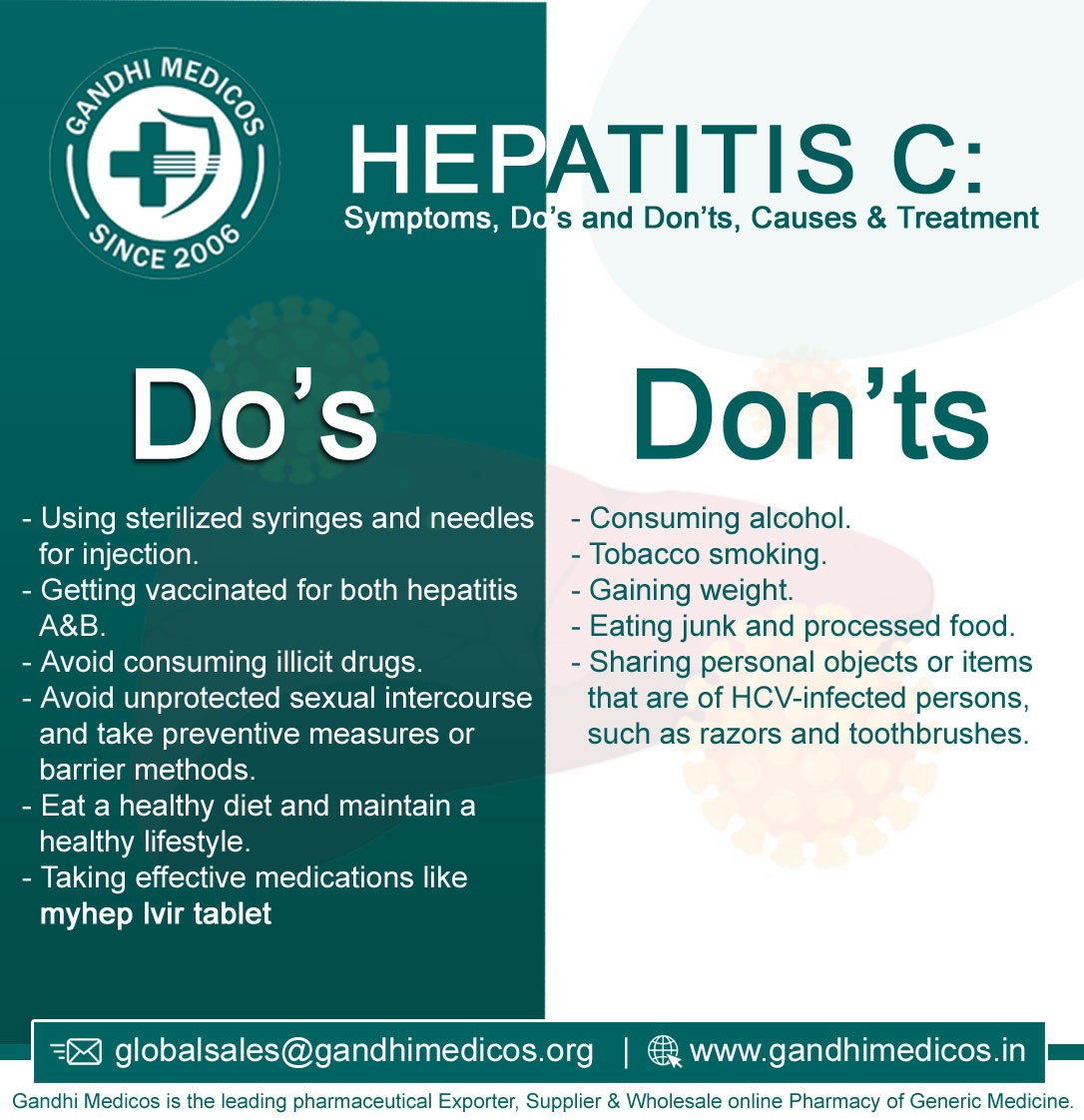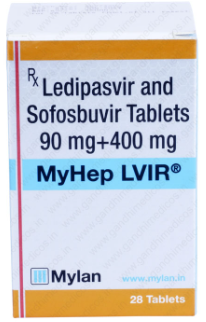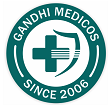Table of Contents
Hepatitis C
It is a type of viral blood-borne disease or infection that is caused mainly due to hepatitis C virus. Whenever hepatitis C is left untreated, it can cause inflammation or swelling of the liver and other serious damage to the organs. But HCV infection spreads when a person comes in contact with contaminated or infected blood. Even though it is a serious infection, with effective medications like MyHep LVIR and other modern treatments, it is now possible to treat HCV infection. Many infected individuals are also leading normal and healthy lives.
Symptoms of Hepatitis C
The incubation period for hepatitis C ranges from weeks to six months. Some of the common hepatitis C symptoms are as follows.
- Clay or Gray-colored stools
- Fever
- Weakness
- Dark yellow colored urine
- Joint pain
- Loss of appetite
- Abdominal pain
- Jaundice or yellow discoloration of skin and eyes
- Vomiting
- Nausea
If you notice any of the above symptoms and you need to consult your healthcare provider immediately, who will recommend you go for lab tests to confirm your HCV infection and then will prescribe you effective medications like ledipasvir 90 mg and sofosbuvir 400 mg.
Do’s
- Using sterilized syringes and needles for injection.
- Getting vaccinated for both hepatitis A&B.
- Avoid consuming illicit drugs.
- Avoid unprotected sexual intercourse and take preventive measures or barrier methods.
- Eat a healthy diet and maintain a healthy lifestyle.
- Taking effective medications like myhep lvir tablet
Don’ts
- Consuming alcohol.
- Tobacco smoking.
- Gaining weight.
- Eating junk and processed food.
- Sharing personal objects or items that are of HCV-infected persons, such as razors and toothbrushes.

Causes of Hepatitis C
Hepatitis C is mainly caused by hep C virus or HCV exposure. This infection transmits when you come in contact with a person’s infected blood in the following ways.
- Using unsterilized syringes, needles, poorly sterilized surgical equipment, infusion bags, or other drug components contaminated with HCV virus.
- When a person gets a sudden prick from a contaminated needle.
- Blood transfusions take place with infected blood.
- When a person uses hepatitis C-contaminated toothbrushes, razors, pedicure rings, or manicuring equipment and nail clippers.
- Being pierced or tattooed with unsterilized tools or inks that were previously used on hepatitis C-infected person.
- Coming in contact with open wounds or the blood of an infected person.
Treatment of hepatitis C
 Treatment for hepatitis C is possible with the help of antiviral medications like myhep lvir. You can find out about myhep lvir tablet prices from your local pharmacy or any online store. In the initial hep C stage, patients are given HIV medications to suppress the virus. After a few months of treatment, the patient will again be recommended by his or her doctors to undergo another blood test to ensure that the person’s body has recovered from HCV. People in the chronic hepatitis C phase will be given hepatitis C medication and will be recommended to perform liver function tests to assess liver damage.
Treatment for hepatitis C is possible with the help of antiviral medications like myhep lvir. You can find out about myhep lvir tablet prices from your local pharmacy or any online store. In the initial hep C stage, patients are given HIV medications to suppress the virus. After a few months of treatment, the patient will again be recommended by his or her doctors to undergo another blood test to ensure that the person’s body has recovered from HCV. People in the chronic hepatitis C phase will be given hepatitis C medication and will be recommended to perform liver function tests to assess liver damage.








 +91-9811604444/ 9811604424/ 9999064250
+91-9811604444/ 9811604424/ 9999064250  8(800)100-47-90
8(800)100-47-90












